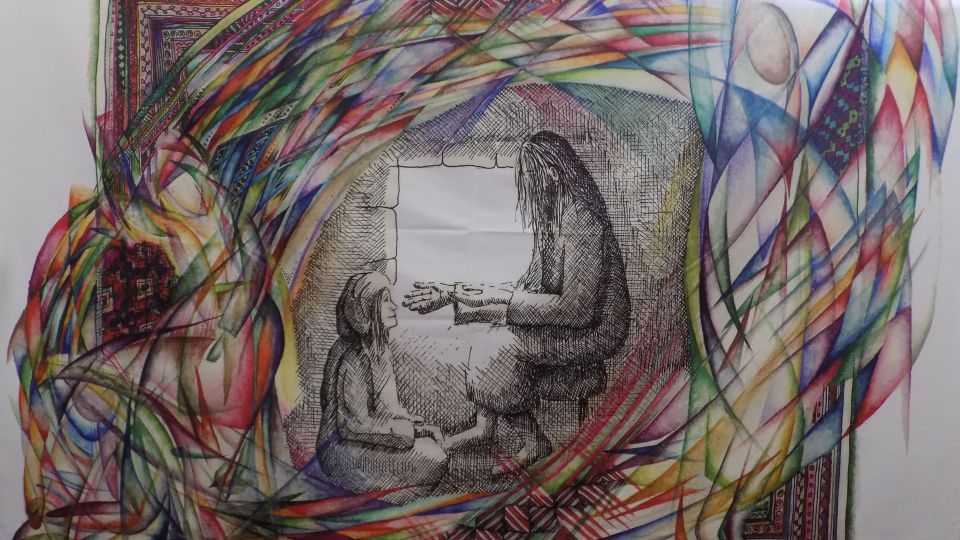Reviewed by Dudley Coates
The Testament of Mary is both a short novel and a play. The novel was shortlisted for the Man Booker prize in 2013. The play was first performed in New York; in May 2014 it came to the Barbican Theatre in London. Directed by Deborah Warner, it features the single actor, Warner's longtime collaborator Fiona Shaw, playing Mary, mother of Jesus. But this is not a Mary most Christians – whether brought up as Catholic or Protestant – would recognise.
For Colm Tóibín's Mary is a mother unable to believe that her son's life and death served any noble motive. It has not, she says more than once, changed the world.
For 30 minutes before the play begins Fiona Shaw sits in a traditional tableau as members of the audience from the stalls wander on stage around her. But then, beginning with a live vulture on her wrist, Fiona Shaw gives us a tortured Mary, telling stories we recognise from the gospels – notably the wedding at Cana, the raising of Lazarus and the crucifixion – but with interpretations so different from those usually given in church that you almost wonder if the accounts bend the gospel stories in some way. For example, in this play Mary's account of the wedding at Cana focuses on her son's rejection of her: ‘Woman, what concern is that to you and to me?’ (John 2:4); hardly a positive note nor a verse on which I have ever previously focused.
I did not spot any direct contradiction of the gospel versions, but much added detail. The gospels tell us little about how Mary felt. This Mary tells of a Lazarus who may not have wished to be raised and now hardly speaks. This Mary cannot bring herself to speak her son's name. This Mary speaks of the people around her son (those we know as the disciples) as misfits. This Mary is so distraught as she watches him die that she tells almost as much about another man's bizarre behaviour at the scene. This Mary spots amongst those crucifying him someone she thought to be on her side. This Mary leaves the scene before he dies. This Mary has given up on God.
Maybe I should read the book. In her Observer review of it (21 October 2012 and still available online), Naomi Alderman says that it 'elegantly allows the space both for doubt and for belief' and speaks of a weary, sceptical and grudging Mary. For her the book 'doesn't challenge Jesus's miracles but does present them as disquieting as much as glorious'.
That reflects how I saw the stage version. Fiona Shaw is a wonderful actor and brings great passion to the part of Mary, almost overwhelming passion when she expresses deep despair in the scene where she strips and tries to wash away her memories. In the final moments of the play Mary says 'When you say that he redeemed the world, I will say it was not worth it. It was not worth it', words which seemed to me to reflect the gospel account of the cry of dereliction from the cross.
This play is not for the faint-hearted or for anyone who prefers traditional comfort zones. Like much of the best art in many forms, this play asks questions and challenges presuppositions. If it comes back, go and see it and expect to be challenged as well as stunned by Fiona Shaw's performance.








.jpg)
